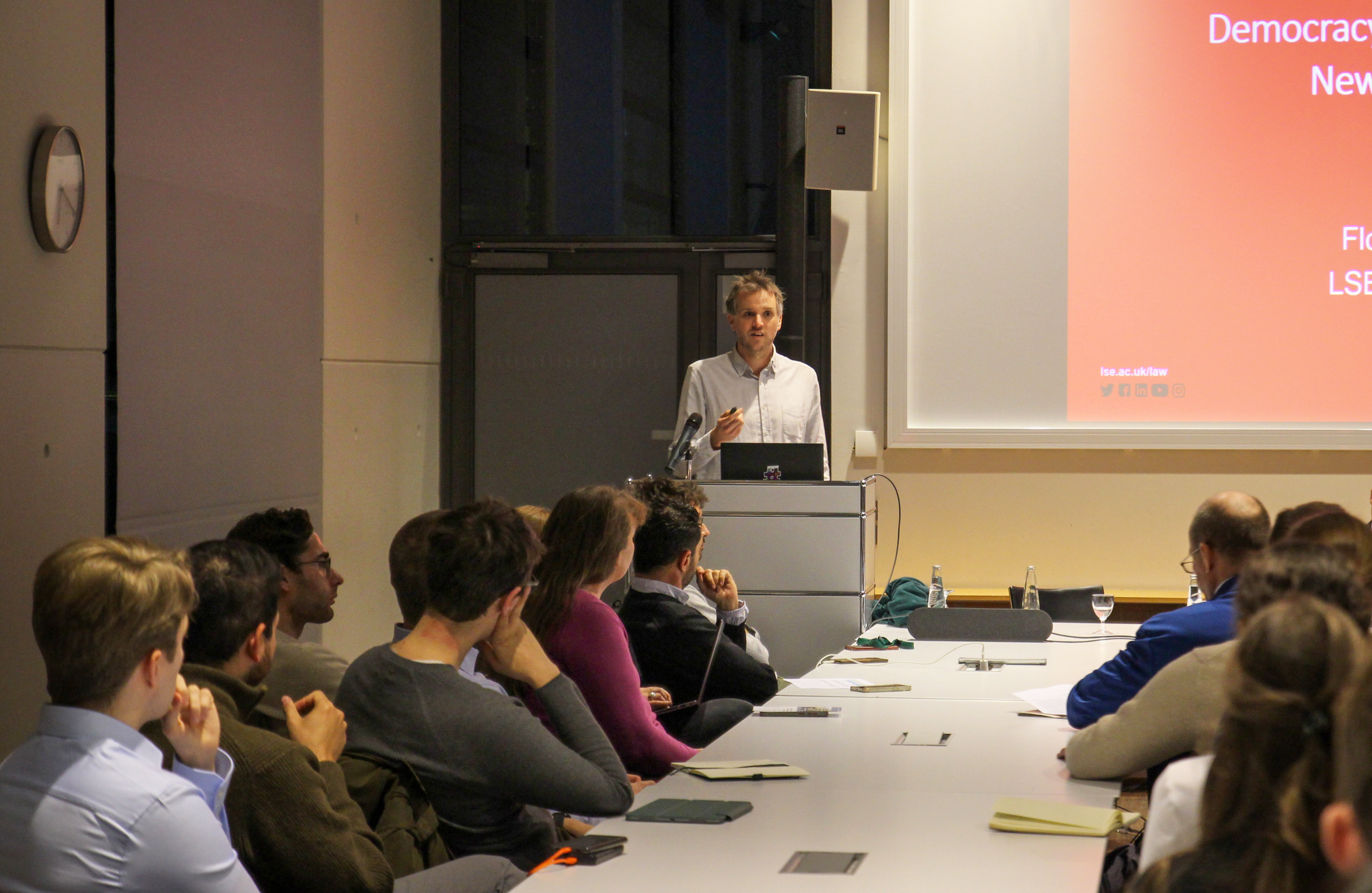A radical transformation of the European Union
In the course of several crises since 2008 the European Union has become more active and independent. This new face of an "Activist European Union" was at the centre of Prof. Floris de Witte's well-attended lecture on 11 March, which he gave in the framework of the series "The Future of the Fiscal and the Social State in the European Union", organised by the Max Planck Institute for Social Law and Social Policy and the Max Planck Institute for Tax Law and Public Finance.
"The EU is changing almost on a weekly basis", Floris de Witte, a Professor at LSE Law School, stated and argued that the crisis management of the EU did not just consist of ad hoc solutions but constituted "a radical and structural transformation". He identified three processes that are both accompanying and accelerating the transformation of the EU: the massive creation of EU infrastructure, the centralisation of institutional and financial power, and a narrative turn focusing on European values and sovereignty. As a result, the EU was increasingly ruling directly over territory, people, markets and political actors, without the need for domestic intermediaries.
Prof. de Witte highlighted that this power shift was primarily in favour of the executive, notably the Commission, the European Central Bank and the European Council, while representative and judicial actors were sidelined. The centralisation was most obvious in the financial realm in which a policy mix of loans, grants and common borrowing (the famous "whatever it takes") has been implemented, among others.
But if the EU continues to accumulate more and more power, how can this be legitimised? On the basis of Charles Tilly's book "Trust and Rule", de Witte distinguished three forms of rule: coercion, capital and commitment. While coercion is connected to totalitarian systems, commitment is the form attributed to democracies, and capital can be found between these two ends. In the EU, one does not have to look far for legally established mechanisms of coercion – be it in the context of border security or digital regulation. Also coercion through capital is a common way for the EU to achieve its objectives and secure policy outcomes, notably through conditionality structures. Examples are the greening and digitalisation requirements in NextGenerationEU (NGEU) or the demand for energy transition in the Clean Industrial Act of the EU.
Much less common, however, is rule by commitment in the EU. This would require the integration of so-called trust networks in EU governance. Trust networks are "informal networks of individuals which depend on each other for crucial activities, like trade unions", de Witte explained and added: "The problem is that the EU does not know how to integrate trust networks." He proposed two paths to forge rule by commitment: 1. A reversion to indirect rule and permission for coercive and financial authority through domestic intermediaries; 2. A radical democratisation of the supranational level to the detriment of Member States. Since both options are "both implausibly radical and radically implausible" the question was: Are we stuck with capital and coercion? Not necessarily. History had shown that centralisation often precedes democratisation, de Witte reminded the audience. The EU may move towards commitment by endowing trust networks with a clear role within the governance system.
In the ensuing discussion, the question was raised as to whether the EU was really exercising power or whether it was not rather a matter of shifting money. The idea of NGEU had been to create an added value across the EU, but it had become a redistribution system between Member States without a guiding line. De Witte replied that the EU was no longer seen as a liberal democratic project, but that its politics had become much more malleable and sensitive to the interests of Member States and that this had given the EU more strength.
With regard to the argument of a power shift, it was pointed out that analyses of how far the centralisation will go differ. In many policy fields, such as migration, there was a lot of interaction between Member States and the EU in the background.
In conclusion, one participant was curious whether Tilly had a proposal on how to deal with troublemakers in the EU. "Tilly never wrote about the EU as such", de Witte acknowledged, "but if you want to control troublemakers, you become more coercive". In this context, one had to be aware that "creating a fuss outside is more dangerous than inside".




